The Best Foods to Get Rid of Fatigue
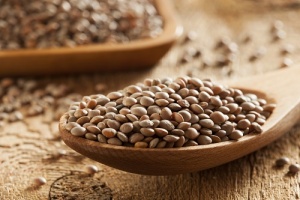
Feeling tired all day long, even if you sleep for a few hours, isn’t healthy. Not only because you end up not doing anything you have planned, but also because the body suffers from fatigue and your defenses reduce, which causes diseases in the long run. In order to prevent this problem, there are different natural alternatives. In this article, you can find out about the best foods to get rid of fatigue.
Causes of Fatigue
There are different reasons why a person gets fatigued or tired easily. The most frequent ones are anemia, sleep problems (insomnia, apnea, narcolepsy), pain, allergies (like asthma), hypothyroidism, depression, alcohol consumption, stress, and taking certain medications (antihistamines, anxiolytics, antidepressants, diuretics, and steroids).
Chronic fatigue syndrome is more common than you might think, especially in populated cities and for people between the ages of 25 and 45. It’s a condition that starts with symptoms similar to those of the flu and can have a duration of more than six months.
The degree of fatigue to determine if a person has this problem would be that their ability to do daily activities would reduce by 50%. It can affect the central nervous system, as well as the immune system and neuroendocrine.
Tips to Getting Rid of Fatigue
The first thing you should do is correct what is known as “normal causes of fatigue“, in other words, physical exertion, lack of sleep, emotional tension, or poor dietary habits. Vitamin supplements don’t resolve the problem by themselves but they can be a huge help during the process.

Some tips to get rid of fatigue are:
- Sleep between six and ten hours a day and pay attention to the quality of your sleep
- Have a varied and balanced diet
- Drink a lot of fluids
- Do moderate physical activity two or three times a week
- Meditate or do relaxation techniques
- Don’t change your sleep cycles or wakefulness
- Avoid excessive consumption of alcohol or tobacco
- Don’t leave the house without eating breakfast
- Eat every three hours
- Don’t drink too much caffeine, whether it’s coffee, tea, or soft drinks
- Don’t drink energy drinks or combine them with alcohol

The Best Foods to Get Rid of Fatigue and Tiredness
Oatmeal
All grains are good for providing you with energy, but oatmeal has B complex vitamins, that will help you be more awake during the entire day. We suggest oatmeal for children and athletes especially. People who are overweight should eat it with caution. Half a cup a day (two large tablespoons) is the proper amount, and it’s best for breakfast.
Read this article too:
Meats
Include red and white meat, and fish in your diet to provide your body with iron, which will prevent anemia. Meat also has tryptophan, an amino acid that is in charge of increasing serotonin, which is a neurotransmitter that acts as a powerful antidepressant and has good effects against insomnia.
Fish is highly recommended due to being high in Omega 3 fatty acids. The suggested amount is a medium-sized serving per day (best at midday) of the different groups, mixed together.
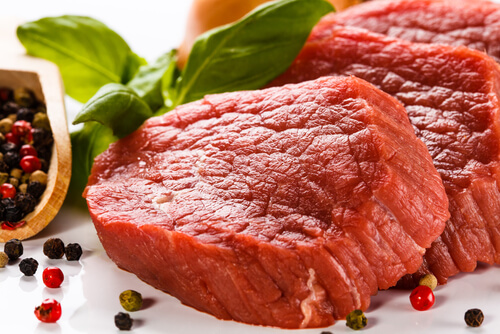
Walnuts
This is one of the most energy filled nuts out there. They have calories but the good part is that they are a good source of B vitamins and omega 3. The recommended serving of walnuts — if you are overweight — is two handfuls per day. If you’re not overweight, you can double the amount.
Pasta
This energy-filled food is a favorite among high competition athletes because it has a large amount of carbohydrates (starch). Eat whole wheat noodles because they are easier for your body to breakdown. Obese people who want to lose weight shouldn’t eat a plate of pasta more than twice a week.
Chocolate
It has a high amount of calories, but also a lot of fats and sugar, which is why you should be careful with how much you eat. We suggest dark chocolate because it has antioxidant properties. Chocolate also has stimulating substances that help lift your mood. 20 to 30 grams a day is enough.
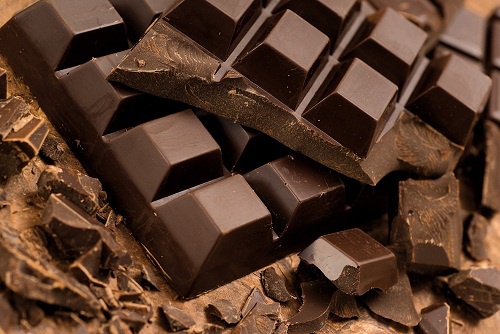
Chia Seeds and Linseed
They are rich in Omega 3 and Omega 9 and other nutrients, which make them superfoods to get rid of fatigue and tiredness. You can include them in any kind of meal like soups, sauces, salads, cakes, etc. We recommend eating two tablespoons a day.
Lentils
They have a lot of nutrients, especially iron and carbohydrates. Even though this is a food that’s usually eaten during the colder seasons of the year, we recommend consuming it in the summer and spring.
You can enjoy cold lentils in salads or hamburgers. In order to take better advantage of its vegetable iron, you will also need to consume vitamin C. This is solved with an orange for dessert. A cup a week would be ideal.
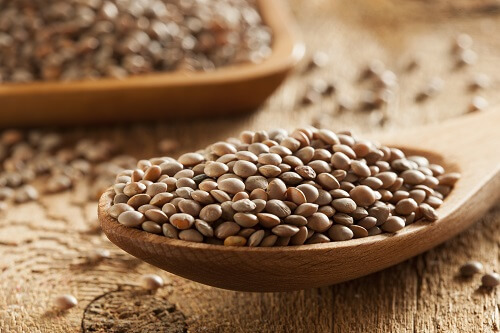
Check out this article too:
3 Delicious Recipes with Lentils
Banana
Bananas have more carbohydrates than other fruits and also amino acids that boost the formation of serotonin, which has an anti-depressant effect. You have to be careful because it will make you gain weight if you eat them every day, but since bananas have potassium and other nutrients, a small amount a day is okay.
Bread
Always choose whole or multi-grains because they have the most healthy carbohydrates (in contrast to bread made with refined flour). Bread will provide you with energy for a longer period of time and B complex vitamins.
Eat bread in the morning with breakfast to start the day with all of your batteries fully charged. The proper serving is 3 slices if you want to lose weight or 6 if you are at a normal weight.
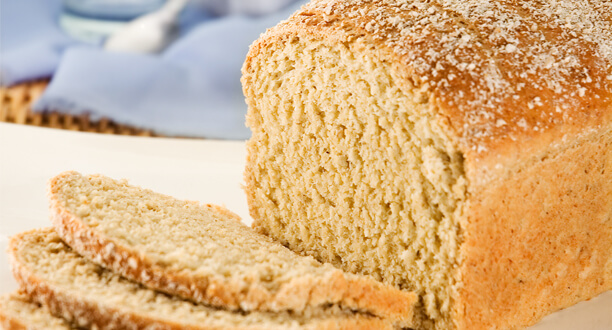
All cited sources were thoroughly reviewed by our team to ensure their quality, reliability, currency, and validity. The bibliography of this article was considered reliable and of academic or scientific accuracy.
Katare, C., Saxena, S., Agrawal, S., & Prasad, G. (2012). Flax Seed: A Potential Medicinal Food. Journal of Nutrition & Food Sciences. https://doi.org/10.4172/2155-9600.1000120
Blasco López, G., & Gómez Montaño, F. J. (2014). Propiedades funcionales del plátano (Musa sp). Revista Médica de La Universidad Veracruzana. https://doi.orCorti, R., Flammer, A. J., Hollenberg, N. K., & Luscher, T. F. (2009). Cocoa and cardiovascular health. Circulation. https://doi.org/10.1161/CIRCULATIONAHA.108.827022
This text is provided for informational purposes only and does not replace consultation with a professional. If in doubt, consult your specialist.








